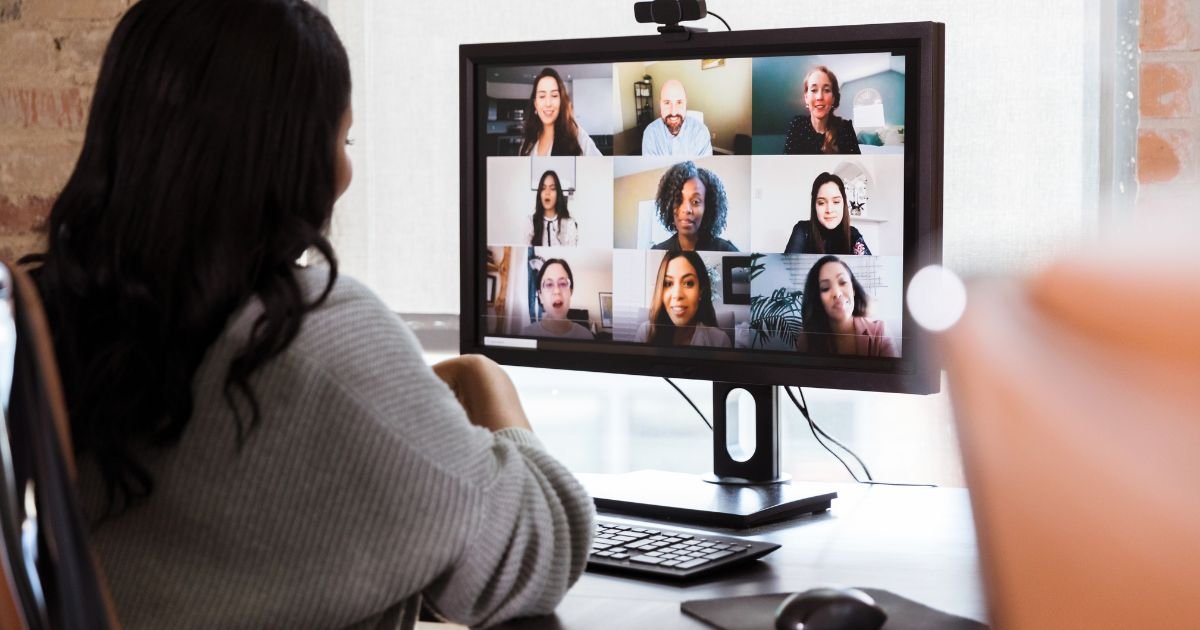Mastering Notification Overload as a Business Leader
Are your days constantly interrupted by an endless stream of notifications? You're not alone! In this episode of Leadership Hustle, join Andrea and Michelle as they tackle the issue of being overwhelmed by notifications and provide practical strategies for managing them. From limiting external interruptions to reducing self-induced distractions, learn how to effectively communicate with your team without drowning in a sea of email, text, and phone alerts. Say goodbye to constant interruptions and hello to increased productivity. Don't get distracted by notifications any longer - tune in now!
LISTEN TO THE EPISODE
Expand Your Leadership Skills.
How To Manage Corporate Communication Channels in Your Business
Communication channels like Slack, Skype, mail, Zoom, Google Meets, and many more can get pretty exhausting pretty quickly. Having content notifications dinging and interrupting your workflow becomes a problem and lowers efficiency, not only for leaders but for everyone in the company.
This becomes even more troublesome when many of these notifications have nothing to do with your work or area. In this episode of The Leadership Hustle Podcast, Andrea Fredrickson and Michelle Hill will go through how to make communication channels work for our business and not the other way around.
Only Use the Necessary Corporate Communication Channels
Of course, communication channels in a business are essential, but it is easy to get carried away with all the technology out there.
How can you use the right communication channel for your business? Ask yourself the following question.
Who is using what method?
Do we need to know this info?
Can we turn it off when we leave?
Create Clarity
In any organization, the key to success lies in effective communication. With multiple channels at our disposal, it is crucial to establish clarity on when and how to use each of these platforms.
Prioritize User-Centric Communication
The focus should always be on what works best for the users of these communication channels - your team members. While individual preferences do matter, the ultimate aim is to create a system that maximizes the effectiveness of your team's communication.
Define the Purpose of Each Communication Channel
It's essential to be explicit about the purpose and appropriate usage of each communication channel. Clear guidelines should be provided on when and why each should be used. This can help prevent miscommunication and ensure everyone is on the same page.
Respect Office Hours
People tend to follow the example and meet the expectations created for them. If you regularly send messages after business hours and expect immediate responses, you implicitly encourage this practice among your team. Instead, promote respectful communication practices by adhering to office hours.
Lead by Example
As a leader, your actions set a precedent for your team. Managing your boundaries and respecting others' time shows that you value their personal time and well-being. By leading by example, you can foster a culture of respect and consideration, boosting morale and productivity.
Get the Right People in the Right Message
One of the key elements to effective communication within an organization or team is ensuring that the right people are receiving the right messages. Start by revisiting and refining your communication groups. Analyze the roles and responsibilities within your team or organization and determine who would benefit from or contribute to specific conversations. Avoid the trap of including individuals in communications without a clear purpose. Not only can this lead to information overload, but it also risks diluting the importance of your messages.
Be a Leader, not a Micromanager
Often, leaders, CEOs, and individuals in similar positions may feel inclined to involve themselves in every communication channel and oversee every minor detail. However, this approach could potentially be counterproductive. Being omnipresent in all communication channels isn't necessarily effective leadership.
Instead, leaders should focus on critical updates and urgent matters, delegating responsibilities where possible rather than attempting to do everyone's job.By strategically staying out of certain communication channels and focusing on general updates, you empower your team to perform at their best and keep accountable. This approach not only reduces undue pressure but also helps to avoid the pitfalls of micromanagement.
Start Seeing Results Today
Ready to see the results you want in your organization and elevate your leadership to the next level. Need some help implementing effective leadership in your organization? Contact Revela Group today for tips and leadership mentoring.
About the Hosts
Andrea Fredrickson
Andrea Fredrickson is a thought leader and consultant at Revela, an organization based in Omaha, Nebraska specializing in the development of leaders, culture alignment, and business strategy for private and family businesses of all sizes. Revela is one of the region's most experienced thought challengers, helping individuals and companies find their greatness. Andrea has built an amazing team by believing that fundamentally people want to be successful and become better versions of themselves.
-
Andrea has degrees in education, management, and business. She is the author of Insight Unseen; How to lead with 20/20 business vision. She helps people see things differently, self-reflect, and never stop looking for ways to improve themselves on a personal and professional level. Andrea has spent more than 30 years researching and developing methods to help people communicate and lead more effectively.
When Andrea isn’t working with clients, you’ll find her spending time with her family & friends and making memories by exploring new cities.
Michelle Hill
Michelle Hill is a master facilitator and coach at Revela, an organization specializing in the development of leaders and aligning the culture of privately held and family businesses of all sizes. Revela is one of the region's most experienced thought challengers, helping individuals and companies find their greatness.
-
An ambitious leader, Michelle has the natural ability to create forward momentum to build teams and get results. She inspires others to look within themselves and to challenge the status quo. She helps create high-performing environments. Michelle brings a diverse background: operations, employee development, and sales in the steel, hospitality, and consulting industries.
Outside of work, you will see her competitive side engaged in her daughter’s sports and ISU athletics. She loves life, her four-legged companions, and captures all the moments through her camera’s lens.
TRANSCRIPT
Andrea Frederickson: Are you drowning in the dings, pings, and other random communication notifications? In this episode of The Leadership Hustle, we'll talk about the pros and cons of all the different communication channels. Hello and welcome to the Leadership Hustle for executives whose companies are growing fast and need leaders who are ready. This is a hot topic. Yes. Oh my gosh. I was um, a month or so ago. I was I literally asked a corporate group, a senior group, I think there were 16 in this group. And I said, okay, how many different communication channels do you use on the. And every day. Yeah. And they started listing them off. So we're looking at email, text teams, chat teams, video zoom, slack the telephone. And face to face. They just started listening all these things, and they had some of their own specific that were unique to their industry.





